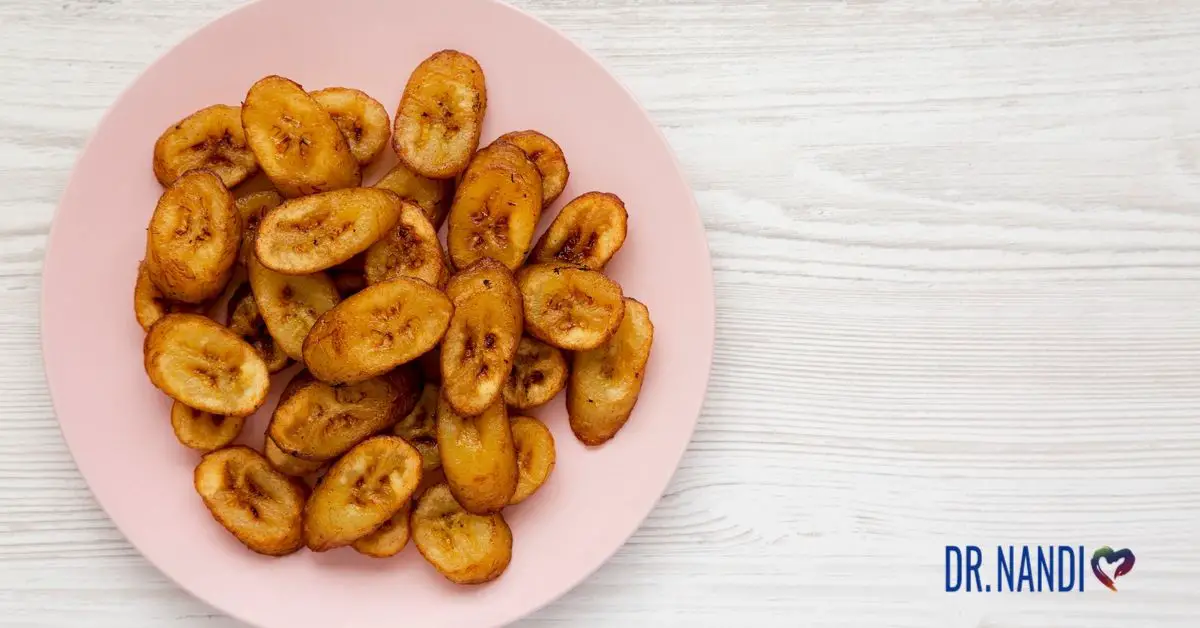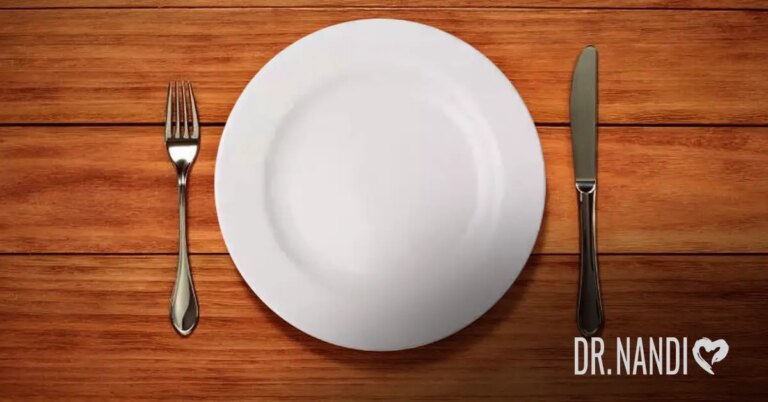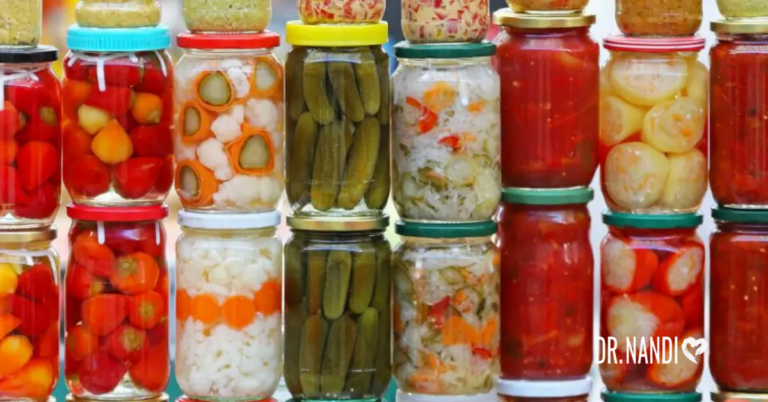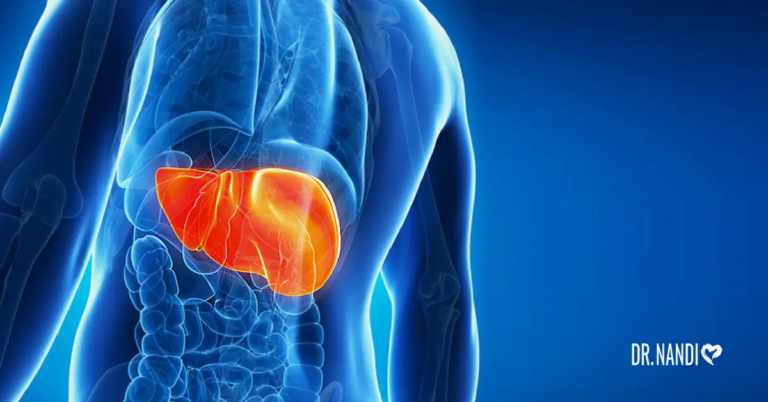Looking for a delicious and nutritious snack? Plantains might be the perfect option for you! Rich in vitamins and minerals, plantains have many health benefits. These are a few reasons why you should include plantains in your diet.
Plantain Nutritional Facts
Plantains are good sources of complex carbohydrates, vitamins, and minerals readily absorbed. Plantains have been the primary food for millions of people for hundreds of years as a staple crop. The USDA provides plantain nutritional facts for one cup (139 grams) of baked yellow plantains.
- 0.22 grams of fat
- 2 grams of protein
- 58 grams of carbohydrates
- 3 grams of fiber
- 663 milligrams of potassium
- 23 milligrams of vitamin C
- 63 ug of vitamin A
- 0.29 milligrams of vitamin B6
- 57 milligrams of magnesium
Plantains are low in protein and fat, so they merely represent a tiny part of a healthy, balanced diet, comparable to other grains in the United States.
Health Benefits of Plantains
Plantains are a good source of complex carbohydrates, vitamins, and minerals. They are also easily digestible and make a great staple food for millions of people around the world. Below are the amazing health benefits of consuming green plantains.
Plantains May Help With Ulcers Caused by Aspirin
Research has shown that dried powder from plantains has a significant ulcer-healing effect on gastric ulcers caused by aspirin. In a published study, researchers found that people who used nonsteroidal anti-inflammatory drug therapy are a high-risk group for developing ulcers in the membrane layer of the stomach. The study’s findings suggest that dried plantain can stimulate the stomach’s inner lining growth.
Plantain is Good for Digestive Health
Plantains are high in fiber which is excellent for the digestive system and helps to keep us regular—a cup of plantains supple 20% of the recommended daily allowance. Plantains add bulk to food intake, which aids in the digestive process. A recent study showed the effectiveness of plantains in relieving constipation and helping to provide some relief from hemorrhoids. The fiber also aids in weight control. The consumption of plantains can help with weight loss in obese people. Fiber is also known to lower cholesterol and blood pressure.
Plantain May Help Aid in Weight Management
Contrary to popular belief, carbohydrates aren’t always a burden for weight loss. Plantains are high in complex carbohydrates, which means they’re not as easy to digest as simple carbohydrates found in processed food. After a meal, they help you stay fuller and happier for longer, which may aid in the reduction of unhealthy food consumption.
Plantain is High in Antioxidants
Plantains provide a substantial amount of your daily recommended vitamin C in a single cup. This vitamin functions as an antioxidant, which may help boost your immune system. It acts as an antioxidant, protecting your body from free radical damage caused by aging, heart disease, and some types of cancer.
According to research, vitamin C intake has been linked to a decreased risk of various cancers. According to a study, vitamin C levels were lower in people with cancer.
Plantain is Good for Your Heart
Plantain contains a lot of potassium, which is critical for keeping your heart rate and blood pressure stable. Plantains’ fiber also helps to lower cholesterol levels, which contributes to the health of your heart.
Plantain May Help Manage Diabetes
Plantains are a traditional remedy for diabetes eaten locally in many areas of Peru. Plantains have been shown to help with blood sugar management. Plantains are rich in resistant starch, which can help manage blood sugar levels. According to research, increasing dietary fiber in the diets of persons with type 2 diabetes is beneficial and can help control the disease.
Plantain is a Great Source of Potassium
Plantains are high in potassium. Plantains are among the most potassium-rich foods globally, with nearly 20% of the daily recommended amount per serving. Potassium is essential for your organs and their function. Potassium helps to regulate blood pressure. Potassium aids in the control of blood pressure because it counteracts sodium’s effects; potassium is beneficial for heart health. Muscle contractions in the skeletal and smooth muscles require potassium for proper function.
Consuming plantains with their potassium will help to regulate heart rhythm. Research has shown that higher potassium levels protect people from stroke, renal disease, and osteoporosis.
Plantain May Help Reduce Free Radicals
Your body produces free radicals when food is broken down or pollutants, such as tobacco smoke, are inhaled. These molecules can cause damage to cells, which can lead to aging, illnesses, and cancer. Vitamin C is an antioxidant that helps to protect cells from this damage.
One banana provides about 30 percent of your daily vitamin C needs, making plantains an excellent source of vitamin C. The body can’t store or create vitamin C (excess is excreted in urine); thus, obtaining the recommended amount is critical.
Vitamin C is a vital nutrient that promotes growth and healing throughout the body. It’s involved in forming skin, tendons, ligaments, blood vessels, cartilage, bones, and teeth maintenance.
Plantain May Boost the Immune System
Research has shown that plantains are great for your immune system. A serving of plantain gives you almost 40% of your daily recommended amount of Vitamin A. Vitamin A helps control your immune response, which helps battle illness. Plus, it is essential in various immune system responses that rely on the vitamin to perform correctly. Vitamin A is vital to the health of your skin and cell growth and the healing of wounds.
Plantain Promotes Healthy Brain Function
Vitamin B6 (pyridoxine), often known as pyridoxal, is a water-soluble vitamin that aids in producing several critical neurotransmitters. Plantains contain up to 24% of your daily required amount of vitamin B6.
Vitamin B6 is essential for optimal brain function, according to research published in the Cochrane Database of Systematic Reviews. It also aids in making serotonin and norepinephrine, which maintain a stable mood, and melatonin, which regulates the body’s circadian rhythm. Vitamin B6 is also essential in lowering homocysteine levels (an amino acid linked to cardiac disease and neurological damage). Levels are kept low to assist with the prevention of tissue injury and vessel health.
Vitamin B6 is found in plantains, which helps turn food into energy and break down fats. B6, like vitamin A, aids in the prevention of eye diseases such as macular degeneration. It works with B12 to generate red blood cells and immune-system cells. Vitamin B6 levels have been shown to help prevent or reduce the symptoms of rheumatoid arthritis.
Plantain is a Great Source of Magnesium
If you want to add magnesium to your diet, start eating plantains. Plantains provide around 16% of the magnesium you need in a meal. Due to magnesium’s role in metabolic activities, the human body cannot function properly without it. Calcium absorption and osteoporosis prevention are all made possible by magnesium’s role in blood pressure management. Research has shown that plantains and their magnesium may help lower the risk of contracting Type 2 diabetes because they can control blood glucose levels. Plantains are being studied for their beneficial abilities in managing migraines, insomnia, and depression.
Side Effects
Banana and plantain allergies are common. The allergic response typically appears within one hour of ingestion or soon after. The symptoms are similar to other food allergies, including itching and swelling of the lips, tongue, and throat; hives; and breathing difficulties, among others.
Plantains are high in carbohydrates and have a high glycemic index. Plantains can raise blood sugar, so people with diabetes should be careful about combining them with other meals that might do the same.
References:
- Dietary fiber for the treatment of type 2 diabetes mellitus: a meta-analysis – PubMed (nih.gov)
- FoodData Central (usda.gov)
- Vitamin C – Health Professional Fact Sheet (nih.gov)
- Vitamin A and Carotenoids – Health Professional Fact Sheet (nih.gov)


















